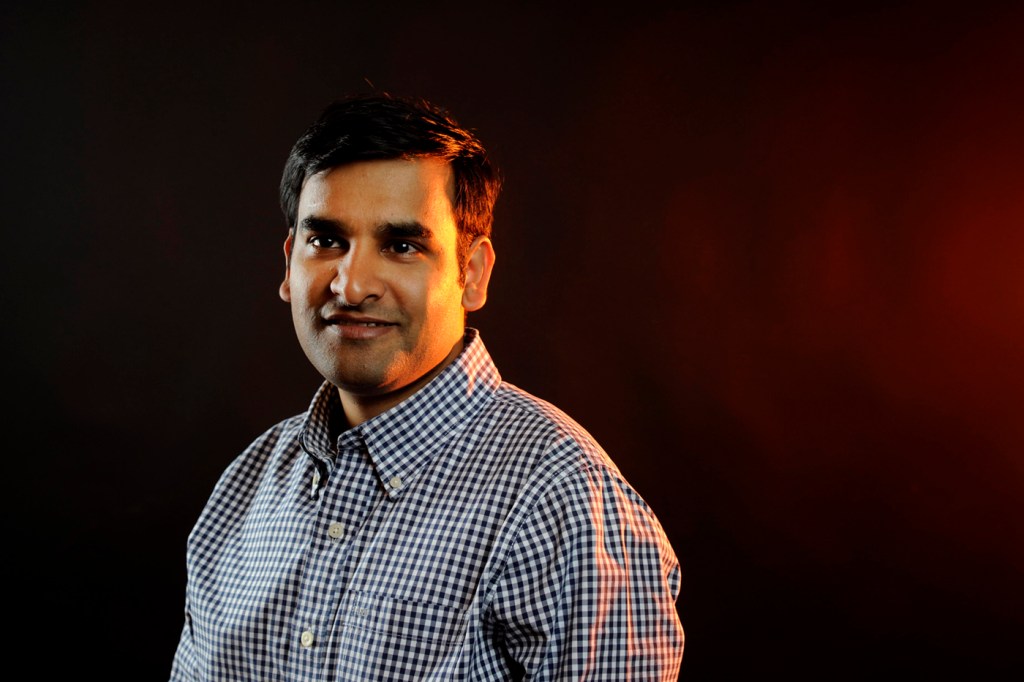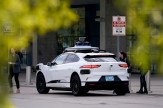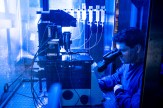How do you deal with quantum computing ‘noise?’ This computer engineer has a solution.

Quantum computers, the next generation of computing machines that promise to solve some of the world’s most pressing problems, have arrived—and Northeastern researchers are hard at work trying to improve these futuristic devices.
They include Devesh Tiwari, assistant professor of electrical and computer engineering, who recently was awarded a National Science Foundation grant to embark on research to improve the reliability of quantum computers.
Makers of existing quantum computers, which are still largely prototypes, have claimed that their state-of-the-art devices can solve in mere minutes problems that would take traditional supercomputers thousands of years to solve. It is one of the promises of quantum computing, an emerging field which practitioners claim is verging on big transformations.
“Even if it may not be apparent right now, quantum computing has already taken off,” Tiwari says. “When revolutionary technologies take off, it becomes apparent only in hindsight. When we look back, the last couple decades will certainly be marked as a ‘take-off’ point, when lots of the theoretical promises of quantum computing started to get realized in practice.”
But there is a problem. Current quantum machines, known as “noisy intermediate-scale quantum-era quantum computers,” or NISQ machines, are highly error-prone. As a result, when computational scientists execute their programs on NISQ machines, they receive “noisy outputs”—that is, inaccurate outputs, Tiwari says.
Seizing on advances in quantum bit technology, or “qubits,” researchers have been trying to build more powerful quantum computers. To do so, they need new techniques like the sort Tiwari hopes to develop to mitigate the side-effects of high error rates.
The funding for Tiwari’s work is part of the federal agency’s Faculty Early Career Development (CAREER) program, given to early-career faculty who are engaged in “scientific leadership, education, or community outreach” and whose projects involve “innovative research at the frontiers of science and technology.”
Tiwari’s project proposal, dubbed “Qurious,” does just that. He and a team of researchers plan to “design and develop a robust system-software ecosystem for quantum computers to help quantum programmers make meaningful interpretations of noisy and erroneous runs on quantum computers.” As principal investigator of the project, Tiwari will be awarded $560,000 over a five-year period to conduct the research.
The end result, Tiwari says, is to be able to scale the software on larger, more advanced machines as they come along. He is uniquely positioned for the research because of his prior expertise in the dependability of supercomputers—predecessor devices to the emerging quantum systems. Supercomputers are currently being used to solve some of the toughest problems worldwide, like finding novel drug therapies, strengthening cybersecurity, and modeling galaxies.
“Quantum computers hold the promise to solve these problems of societal importance much faster,” Tiwari says.
Companies such as IBM, Google, IonQ, and Rigetti Computing have built small-scale quantum computers in recent years. Companies that have created quantum machines will have to demonstrate that their devices can achieve “quantum advantage,” or that the computers can outperform their classical counterparts.
“I feel fortunate and humbled that the [National Science Foundation] is supporting these futuristic, high-risk high-reward ideas,” Tiwari says, “because this project is very forward-looking, very futuristic. I’d note that this award truly belongs to all my students for the high quality of science they do—I am incredibly lucky to have the privilege of advising great students in my lab; they all are remarkably innovative, creative, and persistent.”
For media inquiries, please contact media@northeastern.edu.






